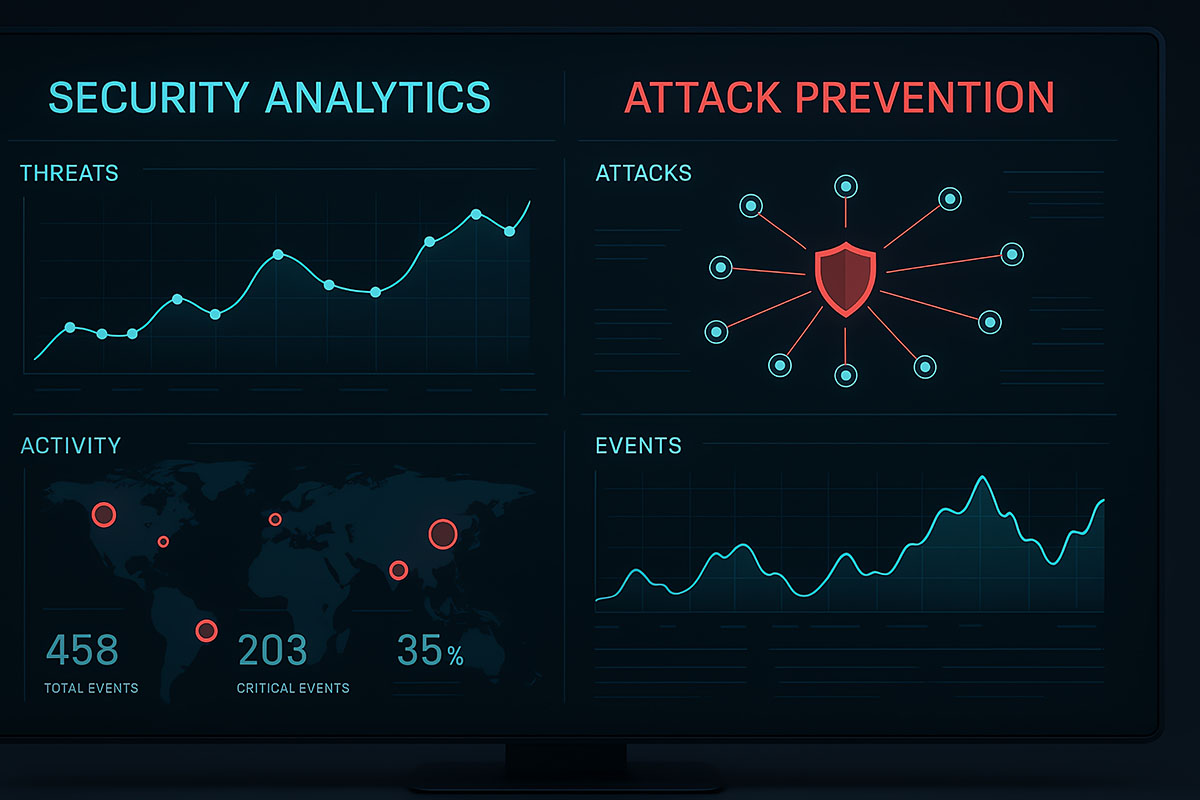

Small Businesses Under Siege: The Urgent Need for Cybersecurity Defense
In an era dominated by digital connectivity, small businesses have become the prime target for cybercriminals looking to exploit vulnerabilities and steal sensitive information. The alarming statistics speak volumes: according to Google's recent report on January 23, 2023, there was an unprecedented 424% surge in new cyber breaches targeting small businesses in the past year alone. The FBI's Internet Crime Complaint Center echoes this concern, emphasizing that the majority of cyberattacks are directed towards small businesses.
The rationale behind this shift is clear: as larger corporations fortify their cybersecurity defenses, cybercriminals are pivoting towards softer targets. The FBI notes that these malicious actors are adapting and evolving, exploiting the often inadequate cybersecurity measures implemented by small and medium-sized businesses. Shockingly, many of the cyberattacks witnessed in FBI investigations could have been thwarted by adopting basic cyber hygiene practices.
Verizon's insights from February 21, 2023, paint a stark picture of the vulnerabilities faced by very small businesses. These enterprises are at a high risk of falling victim to malware, ransomware, brute-force attacks, and social engineering tactics. The chilling reality is that a single incident of cyberattack could prove fatal to these businesses.
The urgency of the matter is further highlighted by the fact that hackers typically engage with compromised systems within a mere 90 minutes of infection. Security experts recommend that a response should be initiated within the first hour to minimize potential damage.
An evolving trend in cyberattacks involves the manipulation of authentication processes, with the aim of gaining persistent access to networks. Malicious actors are increasingly seeking to control identities, highlighting the need for proactive identity protection measures.
For small businesses, the path to cybersecurity resilience begins with the crucial first step: visibility. Understanding your digital assets and their vulnerabilities is pivotal in creating an effective defense strategy. Identity protection is equally paramount in an age where identity theft runs rampant, as illustrated by the staggering 1.4 million reports of identity theft in the US in 2020 alone, resulting in billions of dollars in fraud losses.
The stakes are high, and for small businesses in New York State, the consequences of inaction are legal as well. Failure to implement customer information protection measures can lead to severe legal repercussions.
Verizon's sobering insights put the situation in perspective: small businesses are the primary targets of cybercriminals due to their often misguided sense of security. Just like leaving doors unlocked invites burglars to unguarded homes, small businesses' lax cybersecurity measures make them enticing targets. Shockingly, 60% of small businesses that fall victim to a cyberattack are forced to shut their doors within six months. This tragic outcome is entirely preventable, given that proper security measures could have thwarted many of these attacks.
In closing, the message is clear: the threat landscape has shifted, and small businesses must rise to the challenge. Investing in cybersecurity is no longer optional but imperative for survival. Just as you would secure your home to protect it from intrusion, safeguarding your digital environment is essential to safeguard your business's future. The time to act is now, and our cybersecurity firm stands ready to help you fortify your defenses and navigate this treacherous digital landscape. Your business's survival depends on it.
Sources:
1. Google Jan 23, 2023: “There was a 424% increase in new small business cyber breaches last year.”
2. According to FBI’s Internet Crime Complaint Center, majority of cyberattacks and malicious cyber activity target small businesses.
3. FBI: “The large businesses continue to invest in their cybersecurity and enhance their cybersecurity posture, so what the cybercriminals are doing is they’re pivoting, they’re evolving and targeting the soft targets, which are the small and medium businesses.”
4. FBI: “A lot of the cyberattacks that we have witnessed from our investigations, almost all of them could have been prevented by doing very basic cyber hygiene,”
5. Verizon Feb 21, 2023: “Very small businesses are extremely vulnerable to malware, ransomware, brute-force attacks, and social attacks - and may not survive one incident.”
6. Hackers on average will interact with compromised systems within 90 minutes of infection, and it is recommended that security team responds within the first hour.
9. Malicious actors shift towards modification of authentication processes and seek to control identities that will provide them with persistent access to networks.
10. First step to protect your digital assets is Visibility. Know your assets and learn their vulnerabilities to effectively protect your environment.
11. Identity protection is crucial in today’s digital age where there were 1.4 million reports of identity theft in the United States alone in 2020, resulting in $3.3 billion in reported fraud losses, according to the Federal Trade Commission.
12. Small businesses in New York State are required to take measures to protect customer information. Failure to comply can result in legal consequences.
13. Verizon: “Small businesses are target #1 for criminals (...) often because their false sense of security leads them to not put proper defenses in place. It’s like a homeowner leaving the doors unlocked and open because he figures the criminals will go to the wealthier homes up the hill. What criminals do, though, is first go to the unguarded “homes” at the bottom of the hill to steal stuff. Small businesses have plenty of customer information - like credit card numbers, email addresses, and insurance details - that are enticing to cyber criminals.”
14. Verizon: “From the criminal’s standpoint, it makes sense to target a small business’s cyber security given their potential lapse in security. A research study cited in an article on Cision PRWeb found that 23% of SMBs use no device security, 32% rely only on free solutions, and most admit they are inadequate in training employees to avoid cyberattacks. More than one in four small businesses have no security plan at all.”
15. Verizon: “Here’s an unnerving statistic. Some 60% of small businesses that suffer a cyberattack go out of business within six months. After all the sweat and hard work it takes to build up a business, that’s a tragic way for it to end, especially since many of these attacks could be thwarted by putting proper security in place. Think about it this way. What kind of security would you put around your home if you knew that you might well lose your home if someone was able to break in?”
